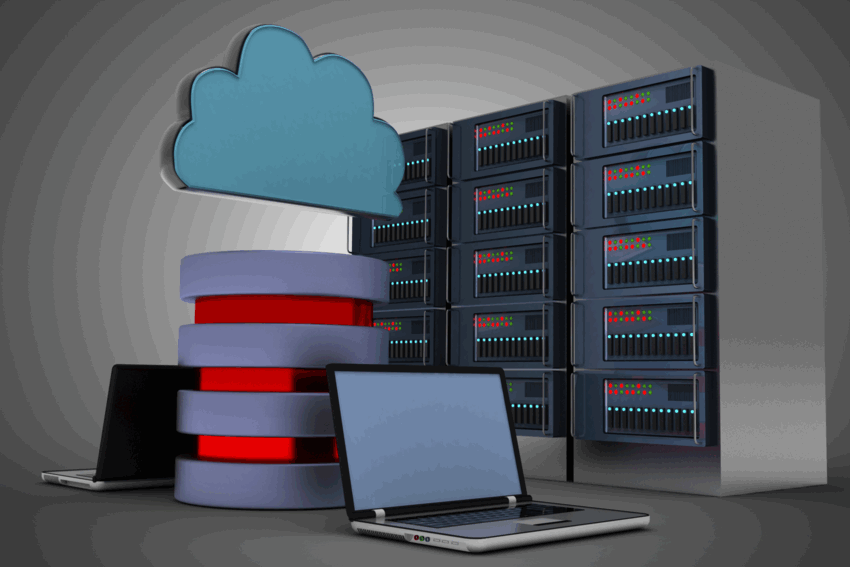The cloud is a collection of servers that store data and provide applications on demand. This makes it easy for users to access information and services without having to install software or pay for hardware.
Advantages Of Cloud Computing
- Advantages Of Cloud Computing
- Cloud is just internet based Computing
- Cloud Computing is Economical
- Cloud Computing is a cost-effective Solution
- Cloud Computing Model is Simple and flexible
- Cloud Computing reduces work load
- Cloud Computing is Convenient
- Cloud Computing helps to improve business and reach
- Cloud Computing demands less hardware and software
- Cloud Computing provides data storage
- Cloud Computing allows network access
- Cloud Computing is reliable and flexible
- Cloud Computing is Virtually Unlimited
- Cloud Computing is Easy to Setup
- Cloud computing is scalable
- Cloud computing provides platform independence
- Cloud computing provides fast speed
- Cloud Computing provides security
- Disadvantages Of Cloud Computing
- Cloud Computing requires users to pay monthly fees
- Cloud computing is not secure
- Cloud computing not allow users to control what data is stored on the server
- Cloud computing is difficult to back up data
- Cloud Computing is slow
- Cloud Computing is that it is hard to find reliable service providers
- Cloud Computing is unreliable
- Cloud Computing is all about the technology
- Cloud Computing is not for everyone
- Cloud Computing is not possible to store large amounts of data
- Cloud Computing is not possible to transfer data between different platforms
- Is Cloud Computing Right For You?
- Conclusions
There are several advantages to using cloud computing, we have prepared a list.
- It is just internet based computing
- Cloud computing is economical,
- Cloud computing is a cost-effective solution
- Cloud computing model is simple and flexible
- Cloud computing reduces work load
- Cloud computing is convenient,
- Cloud computing helps to improve business and reach
- Cloud computing demands less hardware and software
- Cloud computing provides data storage
- Cloud computing allows network access
- Cloud computing is reliable and flexible
- Cloud computing is virtually unlimited
- Cloud computing is easy to setup
- Cloud computing is scalable
- Cloud computing provides platform independence,
- Cloud computing provides fast speed
- Cloud Computing provides security
Right now, let us 5 minutes to explain and show more info for each other.

Cloud is just internet based Computing
Cloud computing is a type of internet-based computing that provides shared computer processing resources and data to computers and other devices on demand.
It is a model for enabling ubiquitous, on-demand access to a shared pool of configurable computing resources (e.g., networks, servers, storage, applications, and services). This shift from traditional, on-premises IT models to the cloud is transforming how organizations consume and deploy IT resources.
Cloud Computing is Economical
Cloud computing is a great way to save money on your IT costs. Instead of investing in hardware and software, you can use cloud-based services that are much more cost-effective. You can also scale up or down your usage as needed, so you’re only paying for what you use. This makes cloud computing a very attractive option for businesses of all sizes.
Cloud Computing is a cost-effective Solution
Cloud computing is a cost-effective solution for businesses of all sizes. It allows businesses to scale their IT infrastructure on demand, without the need for upfront investment or ongoing maintenance costs. Additionally, cloud computing can help businesses to reduce their carbon footprint and become more environmentally sustainable.
Cloud Computing Model is Simple and flexible
The cloud computing model is simple and flexible. It allows organizations to use a variety of resources, including public and private clouds, to meet their needs. The model is also scalable, so organizations can add or remove resources as needed.
Cloud Computing reduces work load
Cloud computing has revolutionized the way businesses operate. It has made it possible for businesses to move their workloads to the cloud, which reduces their work load and makes it easier for them to manage their data.
The cloud has also made it possible for businesses to access their data from anywhere in the world, which has made it easier for them to stay connected and collaborate with their team members.
Overall, cloud computing has made it easier for businesses to manage their data and reduce their work load.
Cloud Computing is Convenient
Cloud computing is a model for enabling ubiquitous, convenient, on-demand network access to a shared pool of configurable computing resources (e.g., networks, servers, storage, applications, and services). This technology allows businesses to avoid the upfront capital expenditure of purchasing and maintaining their own IT infrastructure.
Cloud Computing helps to improve business and reach
Cloud computing can help businesses to improve their performance and reach. By using cloud services, businesses can scale their operations more effectively and efficiently. Additionally, cloud services can help businesses to better manage their resources and connect with customers and partners.
Cloud Computing demands less hardware and software
Cloud computing is a model for enabling ubiquitous, convenient, on-demand network access to a shared pool of configurable computing resources (e.g., networks, servers, storage, applications, and services). This definition of cloud computing is based on NIST’s working definition published in September 2011.
Cloud Computing provides data storage
Cloud computing refers to the storing and accessing of data and information over the Internet instead of on a computer or other physical storage devices. This type of computing allows businesses and individuals to use applications and store data in the cloud, which can be accessed from anywhere in the world.
The advantages of cloud computing include the fact that users can access their data from any location, as long as they have an Internet connection. In addition, businesses can save money on expensive hardware and software by using cloud-based applications. Cloud computing also provides increased scalability and flexibility for businesses, as they can easily add or remove users and applications as needed.
Cloud Computing allows network access
Most businesses today rely on some form of cloud computing in order to allow their employees to access company data and applications from anywhere. Cloud computing allows for a more flexible and mobile workforce, as well as the ability to scale up or down quickly as needed. It also helps to reduce IT costs by using pay-as-you-go models and eliminating the need for on-premises hardware and software.
Cloud Computing is reliable and flexible
Cloud computing is a reliable and flexible way to store and access data. It allows businesses to securely store data in the cloud and access it from any location. Cloud computing is a cost-effective solution for businesses of all sizes.
Cloud Computing is Virtually Unlimited
Cloud computing is a model for enabling convenient, on-demand network access to a shared pool of configurable computing resources (e.g., networks, servers, storage, applications, and services). This paper provides an overview of cloud computing, its evolution, deployment models, and service models. It also discusses the advantages, disadvantages, and security challenges associated with cloud computing.
Cloud Computing is Easy to Setup
Cloud computing is easy to set up and use. It can be used to store and share data, applications, and resources. Cloud computing can be accessed from any location with an Internet connection.
Cloud computing is scalable
Cloud computing is an efficient way to scale up or down, depending on the needs of the business. It allows businesses to pay for only the resources they use, which can save money and increase efficiency. Cloud computing is also flexible, so businesses can quickly add or remove resources as their needs change.
Cloud computing provides platform independence
Cloud computing provides platform independence, which means that an application can be run on any type of computing platform without having to be rewritten or recompiled. This is a major advantage for businesses because it allows them to use any type of computing platform, including public clouds, private clouds, and hybrid clouds.
Cloud computing provides fast speed
Cloud computing provides fast speed and scalability for businesses. With cloud computing, businesses can quickly scale up or down their IT infrastructure according to their needs. This flexibility and scalability is critical for businesses that are growing or changing rapidly. Cloud computing also allows businesses to access their data and applications from anywhere in the world, which is essential for today’s mobile workforce.
Cloud Computing provides security
Cloud Computing provides security in a variety of ways. First, it can help to encrypt data so that it is difficult for unauthorized individuals to access it. Second, cloud-based services can help to identify and track potential security threats. Finally, cloud providers can offer a variety of security-related services, such as malware removal and intrusion detection.
Disadvantages Of Cloud Computing
However, there are some disadvantages to using cloud computing. You have to check these presents before make a decision:
- Cloud Computing requires users to pay monthly fees
- Cloud computing is not secure
- Cloud computing not allow users to control what data is stored on the server
- Cloud computing is difficult to back up data
- Cloud Computing is slow
- Cloud Computing is that it is hard to find reliable service providers
- Cloud Computing is unreliable
- Cloud Computing is all about the technology
- Cloud Computing is not for everyone
- Cloud Computing is not possible to store large amounts of data. Lastly
- Cloud Computing is not possible to transfer data between different platforms.
Cloud Computing requires users to pay monthly fees
Cloud computing has revolutionized the way businesses operate. By using cloud-based services, businesses can reduce their IT costs and increase their flexibility. However, cloud computing requires users to pay monthly fees for the services they use. These fees can add up, and businesses need to be aware of them when budgeting for their cloud needs.
Cloud computing is not secure
Although cloud computing has become increasingly popular in recent years, there are still many concerns about its security. One of the biggest concerns is that cloud computing providers may not have adequate security measures in place to protect customer data. Another concern is that customers may not have control over their data once it is stored in the cloud. This could lead to data breaches or other security issues.
Despite these concerns, cloud computing providers are working to improve security and address these concerns. Many providers now offer security features such as data encryption and user authentication. In addition, some providers are now offering customers the ability to control their data and set permissions. These improvements are helping to increase confidence in cloud computing and its security.
Cloud computing not allow users to control what data is stored on the server
Cloud computing does not allow users to control what data is stored on the server. This can be a security issue, as it is possible for the data to be accessed by unauthorized individuals. Additionally, it can be difficult to retrieve data from the server if it is lost or corrupted.
Cloud computing is difficult to back up data
Cloud computing can be a great way to store and share data, but it can be difficult to back up data in the cloud. There are a few different ways to back up data in the cloud, but each has its own challenges. One way to back up data in the cloud is to use a cloud backup service. These services typically charge a monthly fee, but they can be a great way to ensure that your data is backed up. Another way to back up data in the cloud is to use a cloud storage service. These services typically provide a certain amount of storage for free, but you may have to pay for more storage. Either way, backing up data in the cloud can be a challenge.
Cloud Computing is slow
One of the biggest complaints about cloud computing is that it can be slow. This is often due to the fact that cloud-based applications are hosted on remote servers, which can introduce latency issues. Additionally, cloud-based applications may not be optimized for speed, which can also lead to performance problems. If you’re looking for a fast and responsive experience, cloud computing may not be the best option.
Cloud Computing is that it is hard to find reliable service providers
One of the challenges of cloud computing is finding a reliable service provider. With so many providers to choose from, it can be difficult to know which one will meet your needs. It’s important to do your research and ask other businesses who they use for their cloud services.
Once you find a few providers that look promising, be sure to read the fine print and understand the terms of service before signing up.
By taking the time to find a reliable provider, you can ensure that your business will have the cloud services it needs to succeed.
Cloud Computing is unreliable
There are a number of reasons why cloud computing is unreliable.
- First, cloud-based systems are reliant on the internet, which can be unstable.
- Second, cloud providers can experience outages, which can impact users.
- Third, data stored in the cloud can be subject to security breaches.
- Fourth, users can experience problems with compatibility when using cloud-based applications.
- Finally, cloud providers can change their terms of service, which can impact users.
Cloud Computing is all about the technology
Cloud Computing is all about the technology that enables us to access our data and applications from anywhere in the world. It is a way of storing and accessing data over the internet instead of on our own computers. Cloud Computing allows us to share files and applications with others, and to work on them collaboratively.
Cloud Computing is not for everyone
Not everyone needs cloud computing. If you have simple needs, like storing a small amount of data or sharing files with a few people, then the cloud is probably not for you. It’s also not necessary if you have your own server or are already using another storage solution. The cloud can be expensive and it’s not always easy to use. So, if you don’t need it, don’t bother.
Cloud Computing is not possible to store large amounts of data
There is a common misconception that cloud computing is not possible to store large amounts of data. This is simply not true. Cloud computing can in fact store large amounts of data, making it a great option for businesses that need to store a lot of data. The key is to have a good cloud storage plan in place. With the right plan, businesses can easily store large amounts of data in the cloud.
Cloud Computing is not possible to transfer data between different platforms
Cloud computing is the practice of using a network of remote servers to store, manage, and process data, rather than a local server or a personal computer.
The data is stored in the cloud, which is a network of servers that can be accessed from anywhere in the world. The data is then processed and stored on the cloud servers.
Cloud computing is not possible to transfer data between different platforms. The data is stored on the cloud servers, and the cloud servers are not accessible from other platforms. The data is processed on the cloud servers, and the cloud servers are not accessible from other platforms.
Is Cloud Computing Right For You?
There are pros and cons to using cloud computing, so it’s up to you to decide whether it’s right for you. Here are some things to consider when deciding whether to use cloud computing:
- Do you need to store large amounts of data?
- • Are you concerned with privacy?
- • How much do you trust the company storing your data?
- • What kind of service does the provider offer?
- • Will you be able to access your data at any time?
- • Does the provider offer 24/7 customer support?
- • How easy is it to switch providers?
Conclusions
Cloud computing advantages and disadvantages contribute to your better idea over this technology and how it can improve yur business and can be helping on your sales.
In conclusion, Cloud computing is advantageous to small and large businesses alike. As technology has become more mobile, the Cloud has become more convenient than ever.
When businesses grow, their data storage needs increase and cloud computing is an affordable option.
Cloud computing is also more convenient than on-site data management. Cloud data storage is more accessible than on-site storage and the Cloud comes with professional tech support.
In summary, Cloud Computing offers many benefits. Organizations can scale up or down quickly as needed, and employees can access business-critical data and applications from anywhere.
Some organizations prefer to keep their data locally, while others find it more secure to store in remote data centers.


